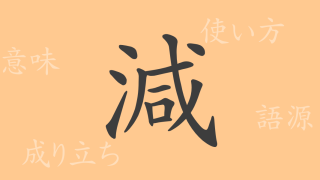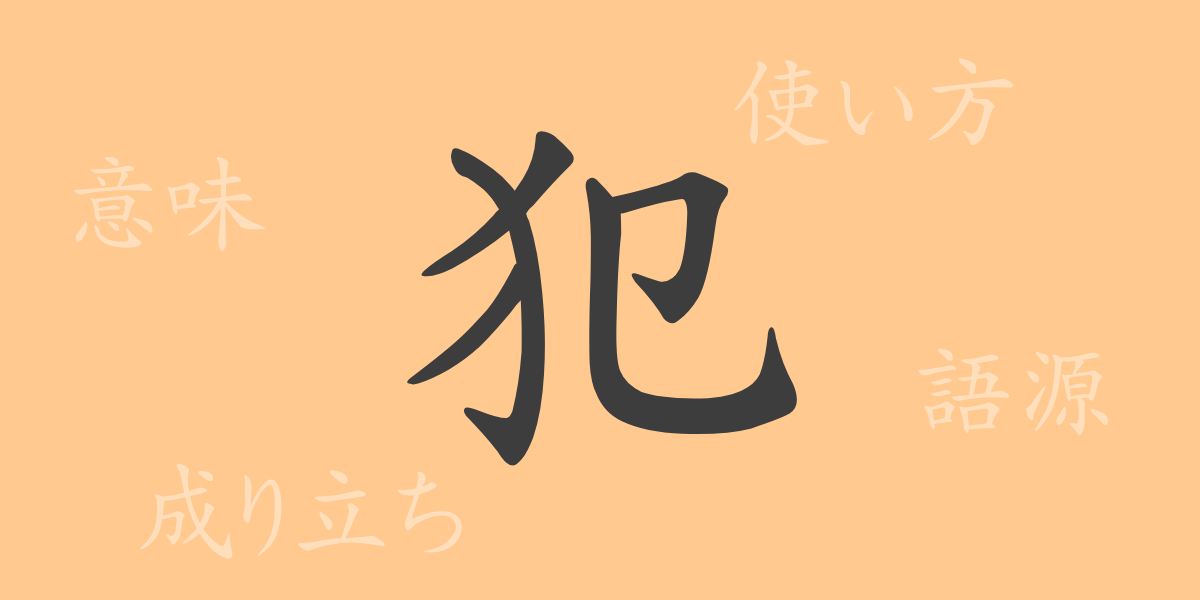Kanji, deeply embedded in Japanese culture, each carry a history and a meaning in their strokes. The kanji “犯” (はん) is no exception. This article explores the deep world of “犯”, from its etymology to its modern usage, including idioms and phrases. By understanding the significance and application of this single character, both learners and native speakers of Japanese can better grasp the correct usage of words.
Origins of 犯 (はん)
The kanji “犯” (はん) comes from ancient China, formed from the radical “犬” (いぬ, dog), suggesting a canine, combined with “𠮛” (ほんがく), symbolizing crime or mistake. Originally meaning ‘a dog committing an intrusion,’ it evolved to represent the abstract concept of committing a transgression. Over time, it has come to denote the act of breaking the law in general.
Meaning and Usage of 犯 (はん)
In contemporary Japanese, “犯” (はん) primarily refers to criminal acts. It is commonly used to describe actions that break the law or are morally unacceptable. It is also used metaphorically to refer to an inexcusable mistake.
Pronunciation, Stroke Count, and Radical of 犯 (はん)
The kanji “犯” (はん) includes several important features for understanding its form and meaning:
- Pronunciation: The on-reading is “ハン” (はん), and the kun-reading is “おか・す” (おかす).
- Stroke Count: It consists of 5 strokes.
- Radical: The radical is “犬部” (けんぶ, dog).
Idioms, Phrases, and Proverbs Using 犯 (はん) and Their Meanings
There are many idioms and phrases that include “犯” (はん), each with its unique significance:
- 犯罪 (はんざい, crime): Refers to actions that violate the law.
- 犯人 (はんにん, criminal): Refers to a person who has committed a crime or is suspected of doing so.
- 重犯 (じゅうはん, serious crime): Refers to a major crime.
- 初犯 (しょはん, first offense): Refers to the first time someone commits a crime, or the person himself.
- 誤犯 (ごはん, wrongful crime): Refers to committing a crime by mistake.
Summary on 犯 (はん)
The kanji “犯” (はん) represents significant aspects of law and morality in the Japanese language, from its form to its idioms and phrases. Understanding and using this character appropriately can enrich one’s choice of words. While dealing with the heavy theme of crime, the meaning of “犯” is always worth considering in our daily lives. Learning the culture and history behind words and striving for accurate usage is key to mastering the richness of the language.

























